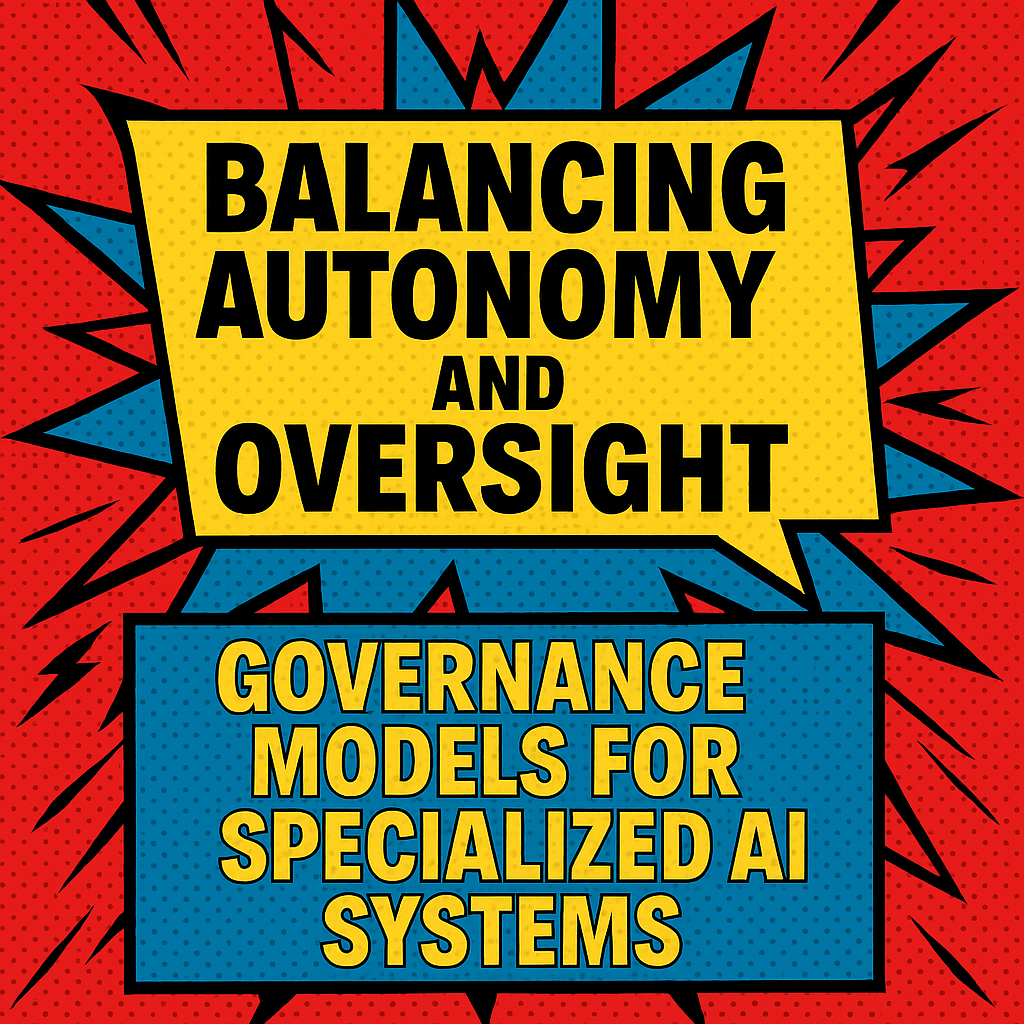
How Agentic AI Powers Data-Driven Compliance in Finance
Traditional compliance operates reactively. Teams follow rule-based checklists, manually review flagged transactions, and scramble to meet reporting deadlines. The work is labor-intensive, expensive, and prone to human error. Yet here's the paradox: as regulations multiply, so does the data available to ensure compliance. Financial institutions now have access to transaction histories, communication logs, external datasets, and behavioral patterns that could dramatically improve compliance outcomes. The problem? Humans simply can't process it all fast enough.
Agentic AI transforms this equation. Instead of treating compliance as a manual policing function, it becomes a proactive, data-driven intelligence layer that works continuously, learns from every interaction, and scales effortlessly across regulatory domains.

Balancing Autonomy and Oversight: Governance Models for Specialized AI Systems
As AI systems become increasingly specialized and autonomous, effective governance becomes an organizational necessity. These aren't general-purpose chatbots, they're sophisticated agents making consequential decisions in finance, healthcare, legal analysis, and industrial operations. Each specialized deployment introduces unique governance challenges that traditional oversight models simply weren't designed to handle.
